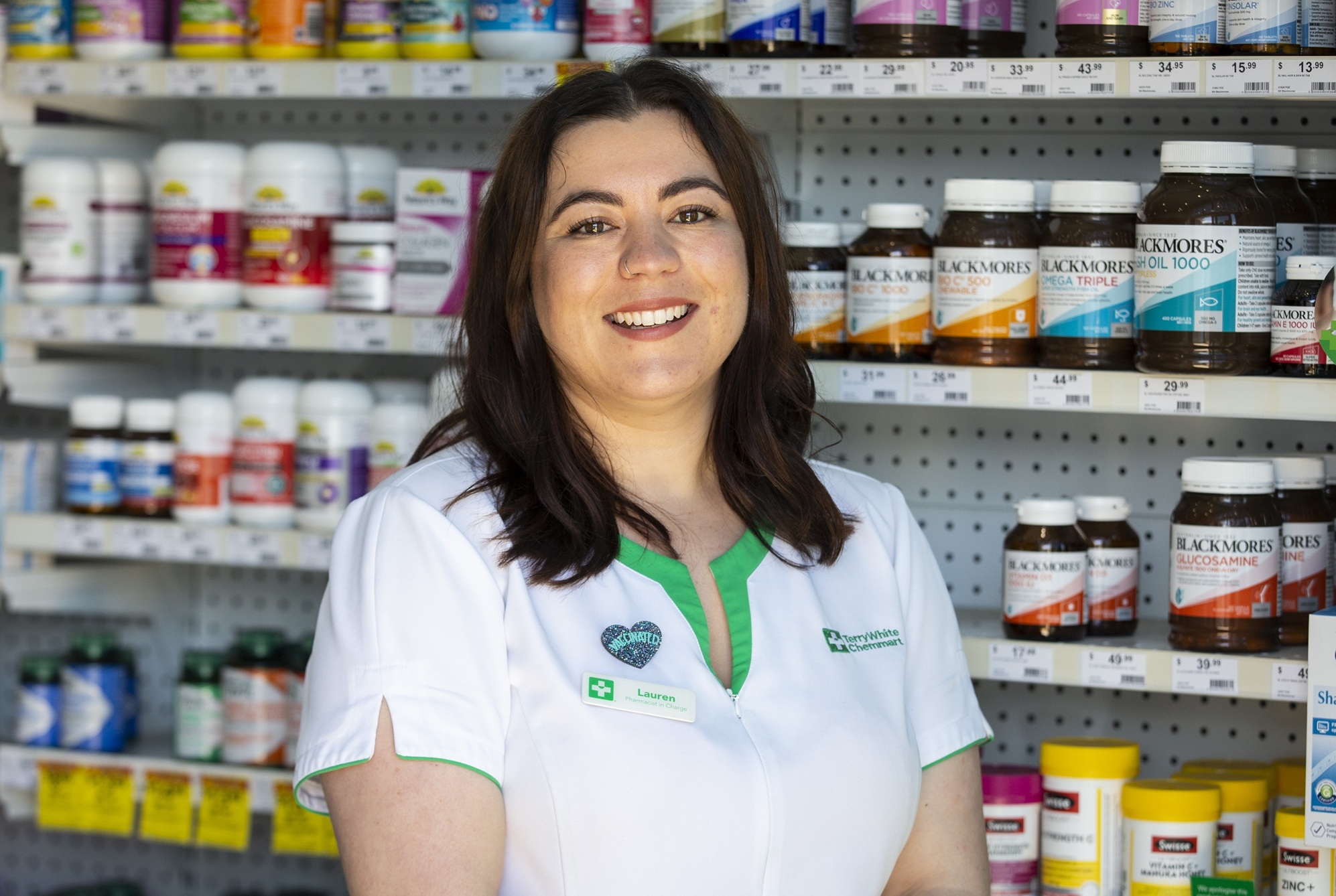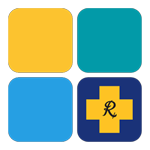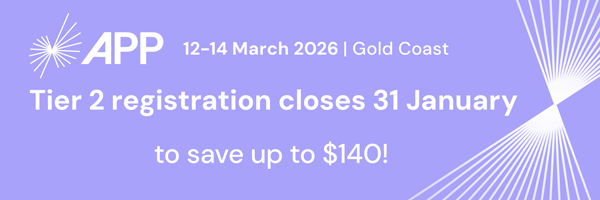It was the first time she spoke about her ADHD (attentiondeficit/ hyperactivity disorder) diagnoses within the profession, despite having worked as a pharmacist for eight years.
“It wasn’t necessarily about me receiving the award – it was about the other types of neurodivergent pharmacists and pharmacy staff I represented,” she said.
Spreading the word
Since then, Ms Haworth, who is a managing partner at TerryWhite Chemmart, at Bacchus Marsh in Victoria, Australia, has been on a mission to share her story at conferences and on podcasts, hoping to create a more inclusive pharmacy environment.
She wants others to know people with neurodiverse conditions can make perfectly capable pharmacists.
“You should always hire a neurodiverse staff member because they might have a roundabout way of thinking that completely revolutionises your processes within your pharmacy,” she said.
The Australian Institute of Health and Welfare states the population rate for medication dispensed for ADHA treatment under the Pharmaceutical Benefit Scheme increased from two patients per 1,000, across 2004 to 2005, to 22 per 1,000, across 2023 to 2024.
Despite diagnoses being on the rise due to awareness growing, Ms Haworth said, stigma still exists in the industry.
“I think we have compassion for neurodiverse patients but more needs to be done for staff,” she said.
She said small things, such as regular breaks and step-by-step checklists, can make a big difference in how neurodivergent staff perform at work.
“Customer facing roles are overstimulating, so even a five-minute break can give employees the reset they need to continue performing at a high level.”
Using her voice
The sentiment is shared by Krysti-Lee Patterson who has been a pharmacist for more than 10 years, and is the founder and CEO of Lrnrx, an AI-powered learning platform for pharmacy staff, universities and pharmaceutical suppliers.
In the early stages of her career, Mrs Patterson’s ADHD made it difficult to focus, especially when checking Webster packs in the busy dispensary, where she would get interrupted to serve customers, check scripts or pick up the phone.
Now, she only checks Webster packs in a quiet place and has a process place that involves other staff members taking a phone message for the pharmacist who can return the call when they’re less busy.
She feels the industry has a ‘suck it up’ attitude because of the culture of urgency in pharmacy.

Australian pharmacist Krysti-Lee Patterson, who hosts the Your Pharmacy Career Podcast, is open about her ADHD diagnoses
“We need to be more accommodating for people and realise not everyone works the same way,” she said.
Her advice is for pharmacy owners to lead with empathy and to take time to understand why an employee might be struggling with a task and subsequently work together to find a solution.
“One of the girls would get mixed up with naming on the scripts and because I am open about my ADHD diagnoses, she felt she could be too.
“She explained she needed more time, so we implemented a few things to give her time… she started making less mistakes.”
Eager to use her voice to help others, Mrs Patterson also hosts the Your Pharmacy Career Podcast. While the podcast covers a wide range of topics, some guests have discussed their own experience with a neurodivergent diagnosis.
“I’ve had Yvette Anderson on there to speak about her experiences and why she set up the Spectrum Pharmacist. I’ve also had Susan Nguyen come on to the podcast to speak about her pharmacy and her ADHD clinic.
“I just want other pharmacists and pharmacy students, who are listening and might be neurodiverse, to know they are not alone,” she said.
Practical tips to make a pharmacy a more inclusive workplace
- Lead with empathy at all times
- Adapt teaching and support methods
- Conduct regular check-ins
- Provide clear objectives but still allowing flexibility and autonomy in how those outcomes are achieved
- Provide regular breaks
- Designate quiet work areas for tasks that require focus
- Rethink how the dispensary operates to make it less chaotic
- Implement clear, accessible communication tools










